Exploring the 8th Principle
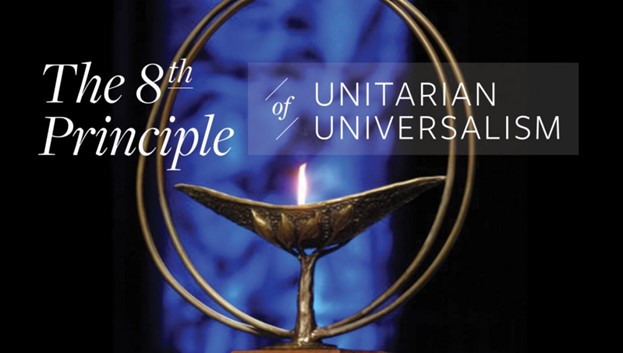
Things to note as you explore this page
The resources available on this page include a diversity of viewpoints on the 8th Principle. No one single document or video listed reflects our community’s collective view on the 8th Principle. These resources were compiled by our task force members, and include suggestions from members of the congregation.
Timeline
The 8th Principle Task Force has reflected on feedback from the congregation and agrees that a longer and looser timeline is necessary. Our work will continue through this year. A vote date has not been set at this time.
Additionally, this webpage is a living document and will be changed and updated as needed. We hope you find the information provided helpful.
Background Information
The addition of an 8th Principle has been proposed by the UUA.
Each UUA member congregation has been called to explore adopting it for our denomination and as well as our local community.
The Proposed 8th Principle:
“We, the member congregations of the Unitarian Universalist Association, covenant to affirm and promote: journeying toward spiritual wholeness by working to build a diverse multicultural Beloved Community by our actions that accountably dismantle racism and other oppressions in ourselves and our institutions.”
Origin of the 8th Principle
Paula Cole Jones, JPD (Joseph Priestley District—the mid-Atlantic district of the UUA, now subsumed into the larger Central East Regional Group, CERG), Director of Racial & Social Justice developed the idea of the existence of 2 different paradigms in UU circles: the UU 7 Principles and Beloved Community (deep multiculturalism). After working with congregations on these issues for over 15 years, she realized that a person can believe they are being a “good UU” and following the 7 Principles without thinking about or dealing with racism and other oppressions at the systemic level. She realized that an 8th Principle was needed to correct this, and talked with Bruce Pollack-Johnson about some of the components that should be in it. Bruce put together an initial draft in 2013, and the two of them worked with a group of anti-racist activists in the JPD to refine it. Bruce’s congregation (the UU Church of the Restoration in Philadelphia) incorporated it into their Covenant at that time, then in May 2017 formally adopted it for themselves and recommended that the UUA adopt it.
Why Now?
In 1997, the UU General Assembly voted to become an anti-racist, anti-oppression, multicultural (ARAOMC) institution. In the few years after this vote, there was some progress but in 2016 the UUA hiring practices were found to be profoundly biased.
The Black Lives Matter movement has exposed the deep-seated racism and oppression in our systems and society and the need for immediate action.


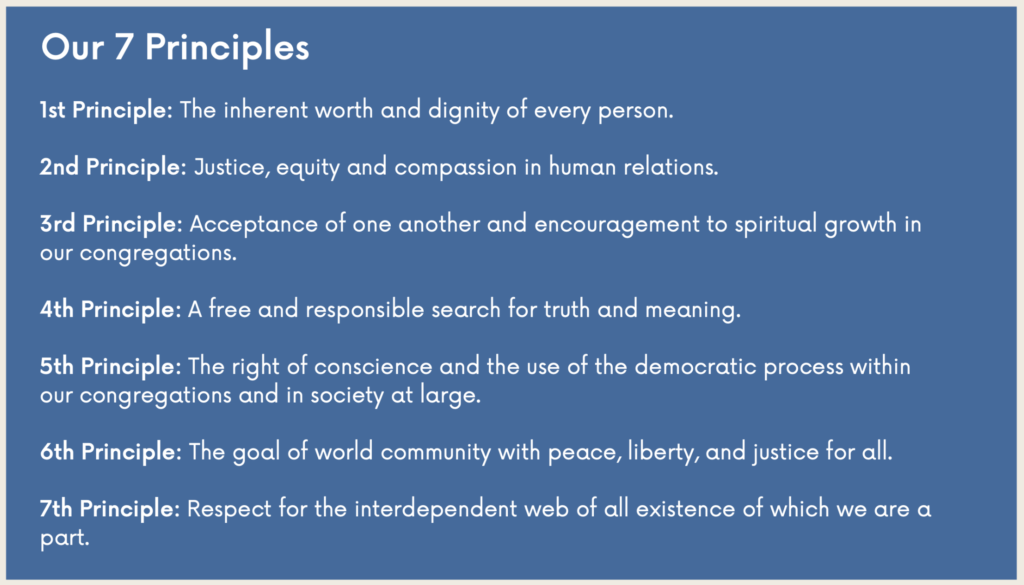
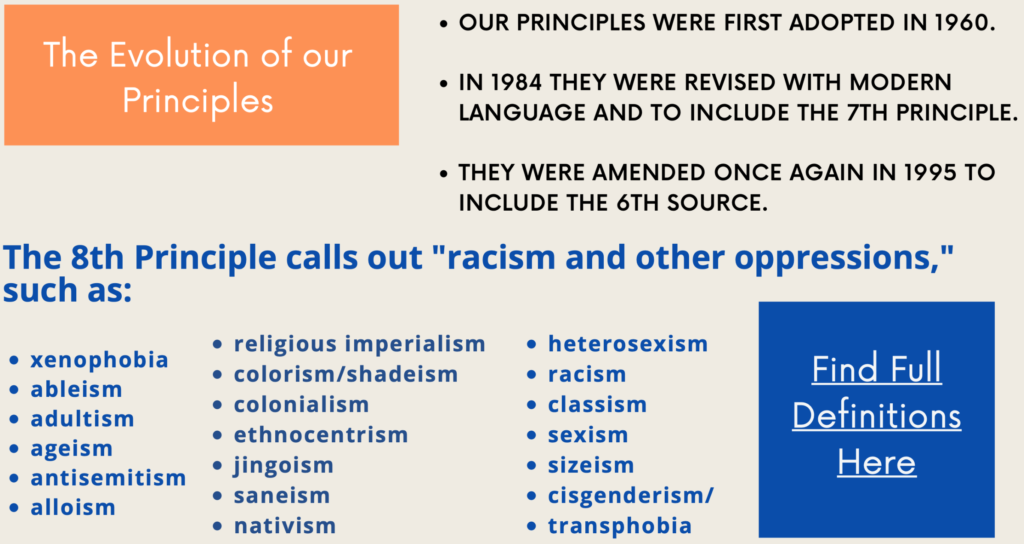
Our Process
To fully engage with this proposed amendment and its ramifications for our community, there will be opportunities for members to learn more and hear from each other. Before we can address the addition or exclusion of the proposal our community needs to share our personal experiences with racism and oppression.
Discussing race and facing the raw history of our denomination, culture, and community can be painful and intimidating.
Our hope is to provide a safe environment to share our stories. We will follow our behavioral covenant and the guidance of the Good Relations Committee to make that possible.
This is an opportunity for members to practice respectful listening and sharing.
Before making a decision, each member will need to do their homework, watch the videos posted, read the background information below, and explore their personal experience with oppression.
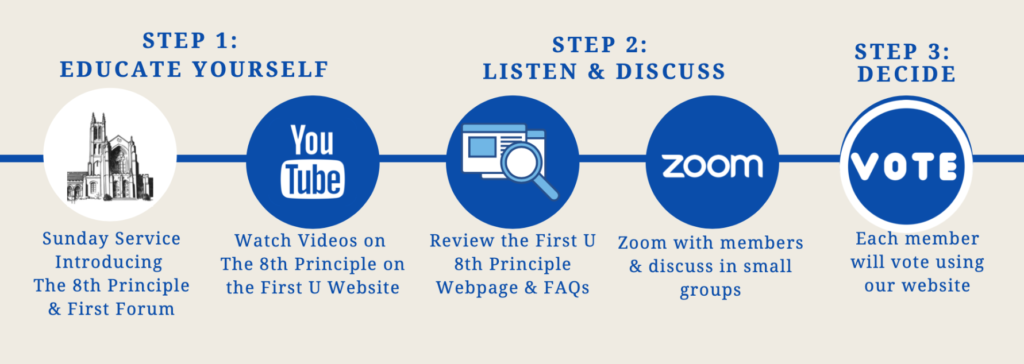
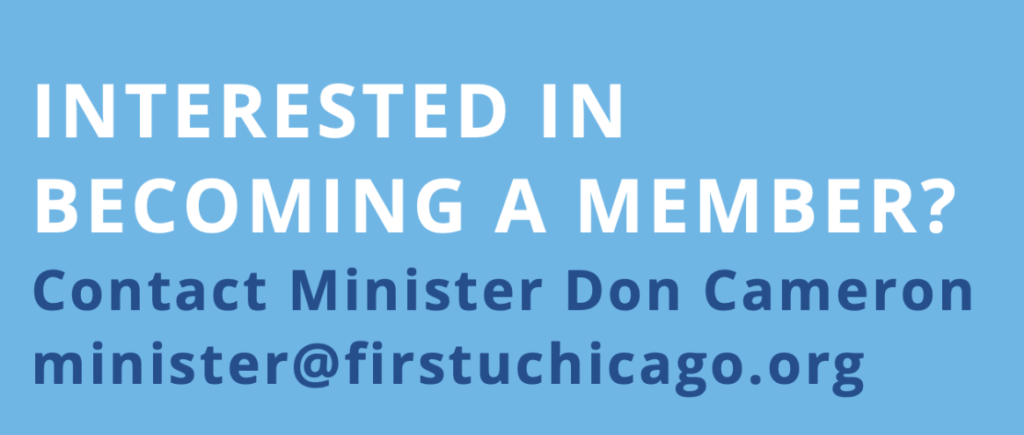
Listening Circles
What is a Circle?
Circles bring together people as equals for honest exchanges about the challenges each has encountered. As such, Circles are a time-worn peacemaking approach inspired by indigenous practice that is also consistent with modern desires to be democratic and inclusive. In so doing, the participants learn from the wisdom of other members of the circle.
- Participants sit in a circle, but without a table between them.
- Dialogue is regulated by a talking piece, an object that is passed around the circle and grants the holder the sole right to speak.
- If a circle is held online there will be a predetermined order.
Circle processes are used in a broad range of contexts from crime victims to classrooms to the workplace. Circles are used for a variety of purposes such as talking, understanding, healing, sentencing, support, community-building, conflict, reintegration, and celebration.”
Ceremonies mark the opening and closing of the session to designate that this space is sacred.
The Circle Process is designed to create a safe space for participants. It does so through these structural elements:
- Guidelines for interaction are agreed upon by participants and are reached by consensus. These guidelines generate expectations for behavior.
- Using a talking piece regulates the conversation and slows it down offering an opportunity for reflection.
- Circles also have a Keeper or a facilitator. This individual is not intended to lead the group but works to maintain the collective space and stimulate reflection. The Circle Keeper will also participate.
Our 8th Principle Circles
Your circle keeper will present open-ended questions related to the 8th principle and oppression.
We encourage you to share your story or stories of oppression. This may include your experiences in relation to FirstU, Unitarianism, and or your personal life.
You may share as much as you’d like to.
What to Expect
- Small groups
- 90 minutes on average
- Maybe online on Zoom or in-person
- Circles will take place as our circle keepers have availability
- Circles will be offered over many months
- Please look out for emails with opportunities to sign up
Circle Keeps at First U
A Brief History: In 2019, Rev. Jason Lydon (then Sabbatical Minister) introduced Peace Circles, a Restorative Justice model emphasizing healing and learning through a collective group process. The Peace Circles were well received, and many members participated in one of three Circles established at 1st U.
Five people were trained as Circlekeepers with the Youth Institute via Precious Blood Ministerial group in November of 2019: Jim Proctor, Anita Orlikoff, Barbara Randolph, Rev. David Schwartz, and Rev. Monica Kling-Garcia. In November of 2021 Evelyn Johnson and Mary Clare Bietila, completed their training as Circlekeepers. Additionally, Cory Muldoon and Rev. Don are also experienced Circlekeepers.
Thanks to the dedication and expertise of these members we can provide circles to help facilitate our congregation exploring the 8th Principle.
8th Principle Resources
• Video: Beyond White Privilege (from USG UU)
• Video: 8th Principle Reflection (from Boise UU Fellowship)
• Video: A Critique Of The Proposed 8th Principle of Unitarian Universalism (Kenneth Ing, non-unitarian commentator)
• The 8th Principle of Unitarian Universalism (Website by the committee who proposed the 8th Principle)
• 8th Principle Frequently Asked Questions (FAQs) (from University Unitarian Church in Seattle, WA)
• The Journey Toward Wholeness Path to Anti-Racism (UUA History)
• The Wording of the 8th Principle is Intentional (from University Unitarian Church)
Contact Us
If you would like to request a resource be added or if you have any questions please reach out to the 8th Principle Task Force: 8thprinciple@firstuchicago.org
The 8th Principle Task Force
Evelyn Johnson
Amos Biggers
Mary-Clare Bietila
Don Cameron
